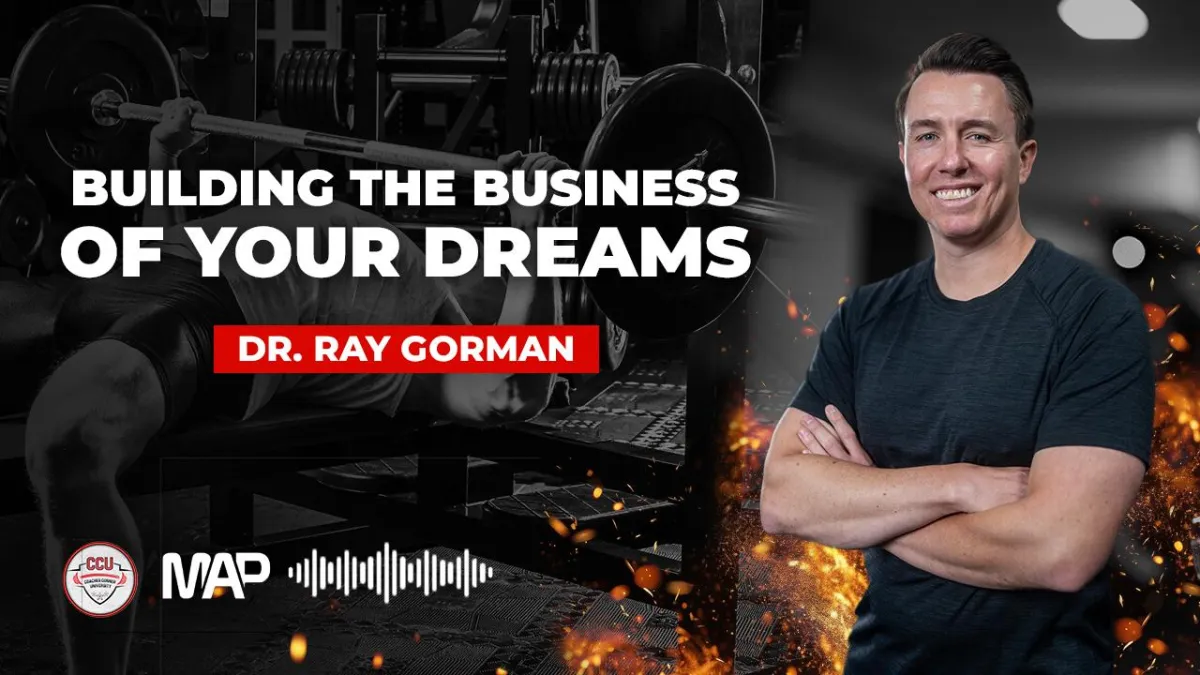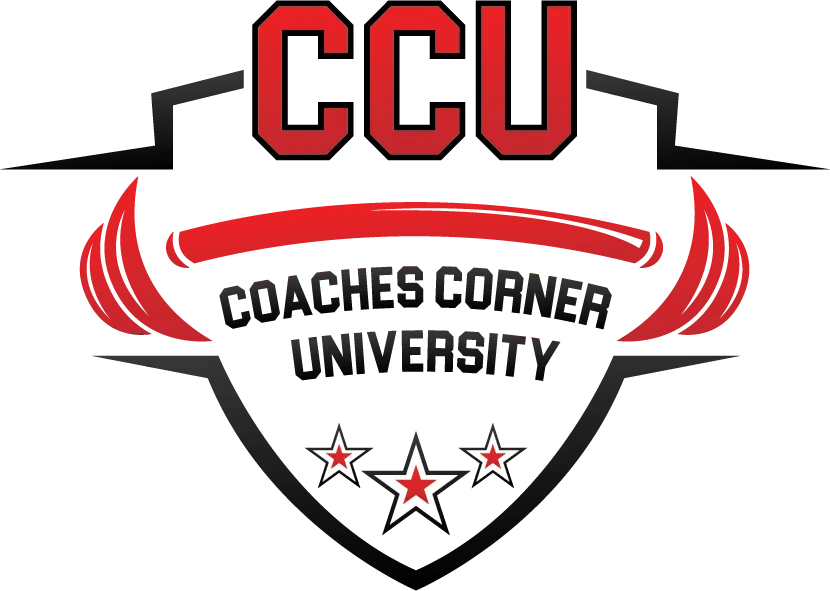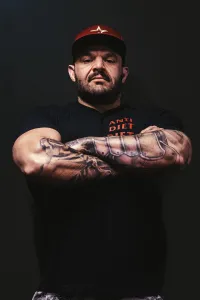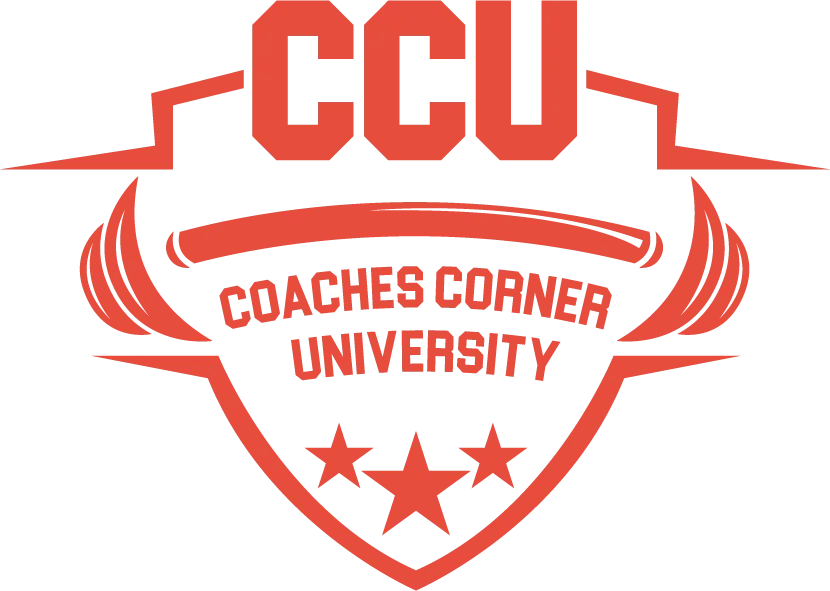Discover The Latest Blogs
Stay updated with Our Informative Blog Posts

CCU Podcast - Ray Gorman:Building the Business of Your Dreams
Building the Business of Your Dreams
Ray Gorman - Building the Business of Your Dreams
In this episode, I sit down with Dr. Ray Gorman PT, DPT, Founder of Engage Movement. Ray has spent his career specializing in working within the fitness and rehab space.
With a background in CrossFit since 2008, which then progressed to Physical Therapy school graduating in 2014, Ray sought out to provide the highest quality of care and education for those who seek to advocate for themselves. As a clinician, Ray worked in various outpatient orthopedic settings, Division 1 athletics, and ultimately niched himself into the functional fitness space blending his passions of strength and conditioning with physical therapy at his cash-pay practice in a gym setting.
Once it became time to scale his impact, Ray shifted focus from the clinical world to the education front where he developed course curriculum, ran business operations, and began mentoring coaches and rehab professionals all over the world. Now, he owns Engage Movement, which helps coaches and rehab professionals build their ideal business with a unique blend of in-person and virtual offers, so they can do more of the things they enjoy without sacrificing their career
As someone who's built my own successful practice from the ground up, I found myself nodding along with Ray's perspectives on entrepreneurship in our field. Whether you're just starting your coaching journey or looking to level up your existing practice, I've distilled our conversation into these 10 Key Takeaways. These aren't just theoretical concepts—they're battle-tested strategies I've personally implemented to build a sustainable, fulfilling coaching practice.
10 Key Takeaways from Building the Business of Your Dreams
Know Your Ideal Client
Ray emphasized that identifying who you genuinely enjoy working with is crucial. For him, it's not necessarily elite athletes but rather people who approach their bodies through a performance lens. As he put it, "The type of client I wanted to work with was always very clear to me... people that look at their body from a performance lens." Ray has built his entire practice around this clarity, creating perfect alignment between his passion and his business model.
The Power of Saying "No"
One of Ray's most powerful insights was about learning to decline clients who don't align with your expertise or values. He shared how initially difficult this can be, especially when building a practice, but emphasized that "the way you actually find your ideal client is working with a bunch of people who aren't that." Ray's willingness to refer potential clients to better-suited coaches has strengthened his reputation and referral network rather than diminishing his business.
Focus on Service Delivery Before Systems
Ray challenged the common notion that sophisticated business systems are prerequisites for success. He revealed how many successful businesses (including his own) reached significant revenue milestones without elaborate CRMs or automated systems. His focus on exceptional service delivery first created the foundation upon which he later built more efficient systems—a lesson that resonated deeply with my own experience.
Different Is Better Than Better
Rather than positioning himself against competitors, Ray focuses on differentiation. As he explained, "One of the things that I try to do in my messaging is I try to talk about how we're different, not how we're better." He believes your unique combination of values, philosophy, and methods creates a coaching signature that no one else can replicate, making comparative claims unnecessary.
Find Your Work-Life Balance Sweet Spot
Ray shared candidly about his journey to sustainable success: "For me, I don't start my day until like 10 o'clock most days. I try to be done by four o'clock, 3:30 so I can get to the gym." This intentional approach to scheduling allows him to deliver his best work while maintaining his own training and recovery. His perspective challenges the hustle culture prevalent in our industry, replacing it with strategic intensity management.
Build the Airplane While Falling
One of the analogies Ray appreciated was about business development: "Instead of building the airplane first, jump off the cliff and then build the airplane on the way down." He encourages new practitioners to start with a minimum viable service offering and refine based on real client experiences rather than getting stuck in preparation mode. For Ray, this meant starting with basic tools and evolving his systems as his practice grew.
Your Knowledge Isn't the Limiting Factor
Ray challenged the common belief that more certifications are the key to success. He asks his clients, "Has your knowledge ever prevented you from getting somebody results?" The answer is almost always no. He believes the limiting factor for most coaches isn't technical expertise but rather the ability to coach, connect, and apply existing knowledge effectively—a perspective that can save young coaches thousands in unnecessary continuing education.
Content Creation Comes From Client Interactions
For coaches struggling with content creation, Ray offered this gem: "When you're a coach or a physical therapist, you don't actually have to be creative with the content that you create because your clients every single day are creating the content for you." He transforms client questions, challenges, and breakthroughs into content that serves his broader audience, eliminating the pressure to manufacture original ideas.
Use the Waterfall Content Strategy
Ray employs what he calls a waterfall approach to content creation: "My content process is almost everything that I do starts with a written newsletter. That newsletter becomes a blog. That blog becomes a swipe post." This strategy allows him to produce consistent, high-quality content across multiple platforms without constant creation from scratch—multiplying his reach while respecting his time limitations.
Business Is a Marathon, Not a Sprint
Perhaps most importantly, Ray approaches business development with the same principles he applies to athletic programming. As he puts it, "We can only sprint for so long, but we're sprinting during a marathon." He's learned to modulate intensity, build in recovery periods, and focus on sustainable growth rather than unsustainable bursts of productivity that lead to burnout.
Remember Ray's powerful reminder: "You're capable of more than you think." This simple yet profound statement captures the essence of his approach to both business development and client success. By implementing his principles—focusing on your unique strengths, building sustainable systems, and prioritizing authentic connection with your ideal clients—you'll develop not just a business, but a fulfilling career that can withstand the test of time.
Find Ray:
Website: www.engagemovement.com
Instagram: https://www.instagram.com/raygormandpt/
Find the podcast:

Coaches Corner PhD




